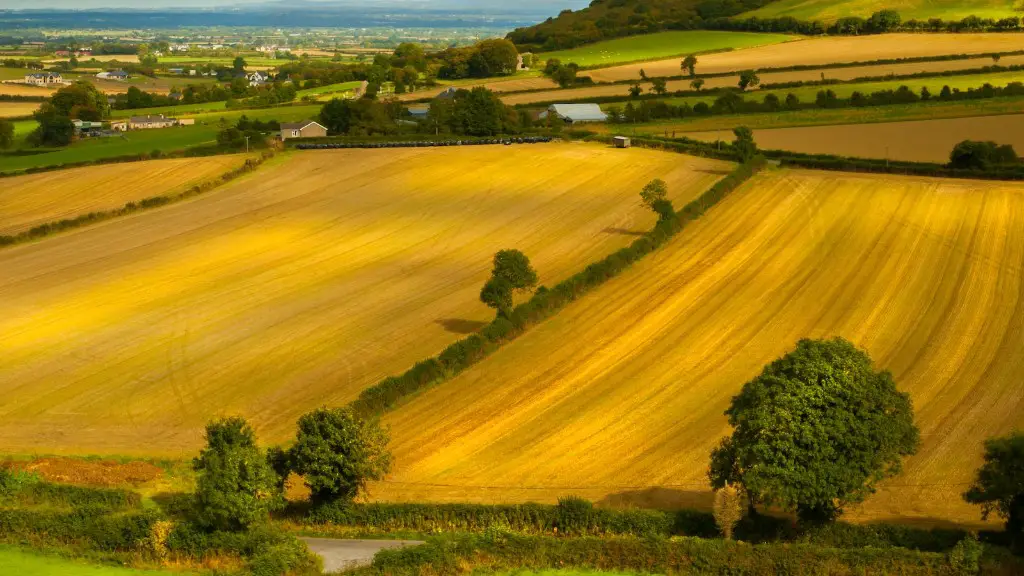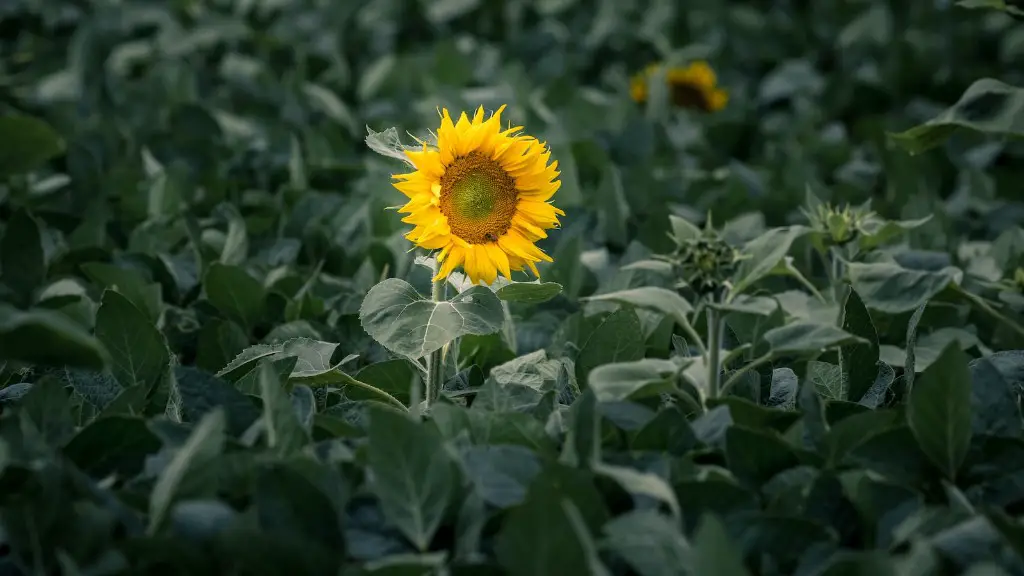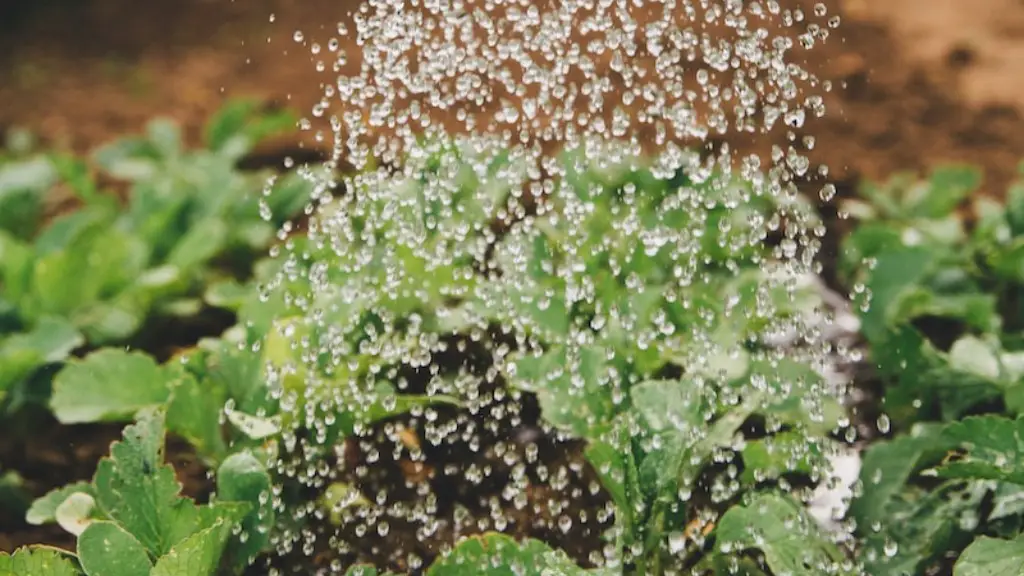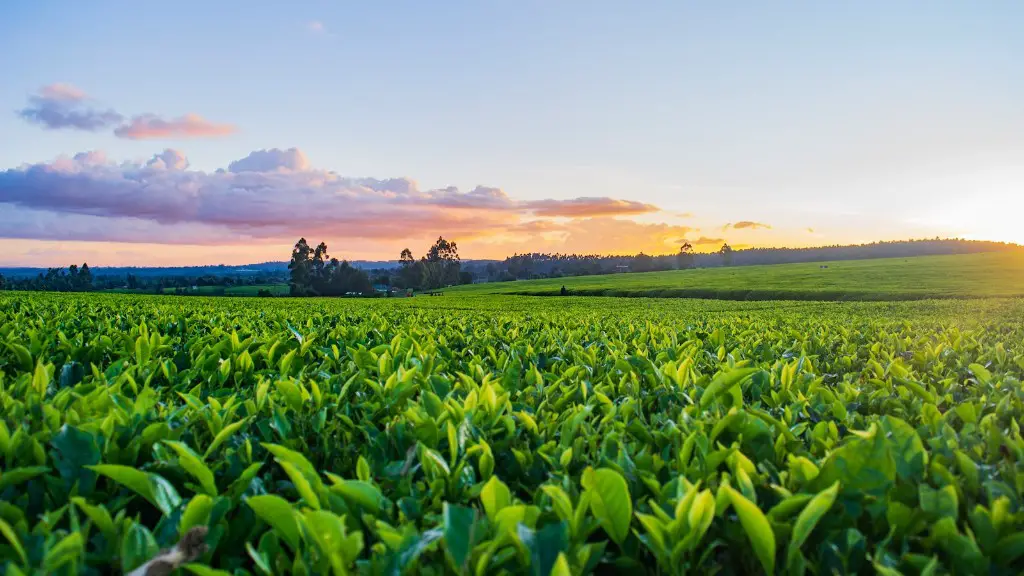There are many different opinions on whether or not agriculture is good. Some people believe that it is a necessary part of life, while others believe that it is detrimental to the environment. There are many different factors to consider when deciding whether or not agriculture is good. Some of these factors include the impact on the environment, the impact on the economy, and the impact on social structures.
There is no simple answer to this question as there are both pros and cons to agriculture. On the one hand, agriculture is responsible for providing the food that we eat, which is essential for survival. On the other hand, agriculture can have negative impacts on the environment, including soil erosion and water pollution. Ultimately, the decision of whether or not agriculture is good depends on the individual’s perspective.
Is agriculture good for the economy?
Agriculture is a vital part of the US economy, contributing nearly $1264 trillion to the country’s gross domestic product (GDP) in 2021. This sector accounts for 54 percent of the US economy, with the output of America’s farms contributing $1647 billion of this total. Agriculture is thus a significant driver of US economic growth and prosperity.
Agriculture has played a vital role in the growth of cities and civilizations. By providing a consistent source of food, agriculture has allowed populations to grow and thrive. Today, the global population is more than seven billion people, thanks in part to the advances in agriculture that have allowed us to farm crops and animals to meet our needs.
Did agriculture make life better
The rise of settled societies and the consequent increase in population was due to the fact that early humans began farming and were able to produce enough food that they no longer had to migrate to their food source. This meant they could build permanent structures and develop villages, towns, and eventually even cities.
The world’s population is projected to increase sharply in the coming years, which will put immense pressure on the planet’s resources. It is essential that we take steps now to ensure that we can produce enough food, fuel, and fiber to meet the needs of everyone. At the same time, we must also protect our environment and expand our natural resources. This can be a daunting task, but it is essential to our survival. We must work together to ensure that our agricultural systems are economically viable and that we can meet the needs of the future.
Is agriculture still important today?
Agriculture is important for many reasons. It helps sustain life by providing the food we need to survive. It also contributes $7 trillion to the US economy. Despite agriculture’s importance, the Economic Policy Institute reports that farmworkers are among the lowest-paid workers in the US. This is an important issue that needs to be addressed. Farmworkers deserve to be paid a livable wage for their hard work.
Agriculture is the backbone of human survival. Without it, we would not have the food, shelter, or clothing that we need to survive. Raw materials for everything from food to clothing to shelter come from agriculture, and without it we would be lost.
What is the main problem in agriculture?
There are increasing pressures from climate change, soil erosion and biodiversity loss and from consumers’ changing tastes in food and concerns about how it is produced. And the natural world that farming works with – plants, pests and diseases – continue to pose their own challenges.
Farming is an important part of the food system and plays a vital role in ensuring food security. But the sector faces a range of challenges, including climate change, soil erosion, and biodiversity loss.
In response to these challenges, farmers are adopting new technologies and practices. They are also diversifying their crops and products to meet changing consumer demands.
Farming is an important part of the food system and plays a vital role in ensuring food security. But the sector faces a range of challenges, including climate change, soil erosion, and biodiversity loss.
In response to these challenges, farmers are adopting new technologies and practices. They are also diversifying their crops and products to meet changing consumer demands.
Consumers are increasingly interested in where their food comes from and how it is produced. They are also concerned about the environmental impact of food production.
As a result, there is a growing demand for food that is produced sustainably. This includes food that is grown using less
Agriculture is the backbone of the modern world and without it, we would starve and civilisation would come to a stop. In order to ensure global food security, we need to adopt sustainable agriculture practices, climate-smart agriculture, modern genetics and improved farming methods. These measures will help us to produce enough food to feed the ever-growing population and to do so in a way that is environmentally sustainable.
What was the biggest mistake in human history
Agriculture has been hailed as one of the most important inventions in human history. It has also been criticized for being one of the biggest mistakes in human history. There is no doubt that agriculture has had a profound impact on human society and the environment. Today, we rely on agriculture to feed billions of people around the world. With so many mouths to feed, we need to find ways to make agriculture more efficient and sustainable. For the future of humankind and the planet, we need to make agriculture work better than ever.
Farming is a way of life that can bring peace if one becomes mindful of the peacefulness that surrounds them. Despite the reality of weather, repairs, and regulations from the government that can bring worry, living on a farm can be calming and satisfying. There is something tranquil about being close to the land and nature. When one takes the time to appreciate the simple things in life, it is easier to find contentment.
Is agriculture is good for future?
BSc (Hons) Agriculture is a great choice for students looking to enter the agriculture field. The coursework provides a strong foundation in the agricultural sciences, preparing students for careers in the private sector, government, or as entrepreneurs. With a growing global demand for food and other agricultural products, a career in agriculture can be both rewarding and lucrative.
The agricultural sector in India is in a precarious position. On the one hand, there is an urgent need to increase crop yields to feed a growing population. On the other hand, increased agri production depletes already declining water tables and soil health. Making matters worse are the advancing effects of climate change.
It is clear that something needs to be done to address this situation. The government, private sector, and farmers will need to work together to find solutions that can increase crop yields while also protecting and conserving natural resources. In the coming years, it will be critical to keep a close eye on the agricultural sector in India and to take action to ensure that the sector is able to thrive in the face of these challenges.
What is the negative impact of agriculture
Agriculture is a leading cause of many environmental issues that are harming our planet. These include climate change, deforestation, biodiversity loss, dead zones, genetic engineering, irrigation problems, pollutants, soil degradation, and waste. We need to take action to protect our environment and ensure that our food production is sustainable.
The pros of agriculture outweigh the cons. Agriculture allowed humans to become experts in their field and to domesticate wheat, corn, and rice. This lead to the creation of civilization.
What would happen if there were no farmers?
Without farmers, the health of the people would deteriorate and the chances of getting sick would increase. This would have a ripple effect on the economy of every country. In this modern world, food is available by the grace of farmers. Farmers are always an essential part of our society and economy.
It is no secret that the agricultural sector in India has been in decline in recent years. A variety of factors have contributed to this trend, including insufficient public investment for agrarian development, inadequate access to institutional credit, and frequent droughts and floods.
The lack of public investment has been a key constraint on the growth of the agricultural sector. The government has not been able to provide the necessary infrastructure and services that would enable farmers to increase their productivity and incomes. This has led to a vicious cycle of declining incomes and rising indebtedness, which has further exacerbated the problem.
The other major problem faced by farmers is the lack of access to institutional credit. Due to the lack of collateral and the high perceived risks, banks and financial institutions are often reluctant to lend to farmers. This has made it difficult for farmers to invest in their businesses and has contributed to the decline in agricultural productivity.
Finally, the frequent droughts and floods in recent years have also taken their toll on the agricultural sector. These extreme weather events have destroyed crops, caused widespread damage to infrastructure, and led to the loss of livelihoods.
The declining trend in agriculture is a matter of serious concern. Unless corrective measures are taken soon, the situation is likely
How agriculture change the life
Agriculture was a game changer for mankind. For the first time, man gave up his nomadic life and settled down in one place. He could grow his own food and no longer had to wander around looking for food. This settled lifestyle allowed man to develop other skills and advance civilisation.
There is no denying that agriculture plays a crucial role in our world. Not only does it provide us with food, but it also supports many other industries and our environment.
My grandpa has a farm in South Dakota where he raises cattle. This is just one example of how agriculture provides us with food. Many other food sources come from different places around the world, such as the southern states where we get some of our fruits and vegetables.
Not only does agriculture provide us with food, but it also benefits our environment. Agriculture helps to keep our air and water clean, provides habitat for wildlife, and helps to fight climate change.
Warp Up
There is no universal answer to this question, as opinions on the matter will differ depending on who you ask. Some people may believe that agriculture is beneficial due to the fact that it provides food and other resources for humans, while others may view it as harmful due to the negative environmental impact that it can have. Ultimately, whether or not agriculture is considered good or bad is a matter of personal opinion.
From everything that has been discussed in this paper, it seems clear that agriculture is good. It provides food for people, creates jobs, and can help the economy. There are some disadvantages to agriculture, but the advantages seem to outweigh the disadvantages.





